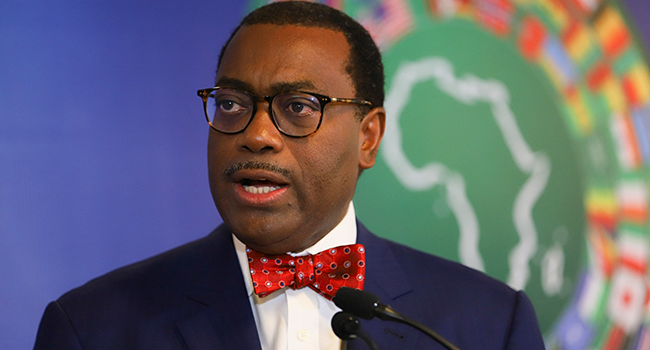THE Presidency has dismissed recent remarks by outgoing African Development Bank (AfDB) President, Dr. Akinwumi Adesina, suggesting that Nigerians are worse off today than they were at independence in 1960.
Responding via a post on his verified X handle, Special Adviser to the President on Information and Strategy, Mr. Bayo Onanuga, criticized Adesina’s assertion as being based on inaccurate data and a limited grasp of Nigeria’s long-term economic trajectory.
Adesina had reportedly claimed that Nigeria’s GDP per capita had dropped from $1,847 in 1960 to $824 in 2024, implying a deterioration in living standards. But Onanuga countered this, stating: “According to available data, our country’s GDP was $4.2 billion in 1960, and per capita income for a population of 44.9 million was $93—ninety-three, not even one hundred dollars.”
He added that Nigeria’s economic growth began accelerating in the 1970s, largely due to rising oil revenues, with the GDP reaching $164 billion by 1981.
“Up until 1980, per capita income did not exceed $880. It rose to $2,187 in 1981 and dropped to $1,844 in 1982. In 2014, after rebasing, it reached an all-time high of $3,200,” he said.
But beyond statistics, Onanuga emphasized that GDP per capita alone is an inadequate measure of living standards.
“GDP per capita is not the only criterion used to determine whether people live better lives now than in the past. Indeed, it is a poor tool for assessing living standards,” he stated.
According to him, GDP fails to account for wealth distribution, the informal economy, and quality-of-life improvements such as access to healthcare, education, and transportation, saying “GDP masks many activities in a country’s economy. It neither discloses wealth distribution or income inequality nor accounts for the informal economy, which experts have said is enormous.”
Onanuga argued that significant progress has been made in various sectors since 1960.
“Compared with 1960, Nigeria today has more primary, secondary, and tertiary schools. We have more road networks and more medical facilities, private and public. We have phenomenal access to telephones,” he said.
Citing a striking example, he noted that at Independence, Nigeria had just 18,724 operational phone lines for a population of about 45 million.
“Over 200 million Nigerians now enjoy near-universal access to mobile phones and digital services,” he said, concluding that such advances indicate Nigerians are better off today.
He also recalled the experience of telecommunications companies in the early 2000s to illustrate the limitations of GDP data.
“When Vodacom considered entering the Nigerian market in 1999 or 2000, its consultants, using the available GDP metrics, advised against it… MTN and other companies that entered the market later proved them wrong,” Onanuga stated.
MTN, he said, remains a testament to Nigeria’s expanding consumer base and economic potential, explaining “in its first-quarter results this year, MTN declared revenue of N1 trillion and an increase of 8.2 percent in subscriptions, which took the number of its voice and data users to 84 million. Does this MTN experience correlate with a country worse off than in 1960, when we had analogue telephones and fewer than 20,000 lines?”
He concluded that any objective assessment would find that Nigeria has made enormous strides since independence.
“No objective observer can claim that Nigeria has not made progress since 1960. Today, as we await the NBS’s recalibration of our GDP, we can comfortably say without contradiction that it is at least 50 times, if not 100 times, more than it was at Independence,” Onanuga affirmed.
While acknowledging Dr. Adesina’s global stature as a respected development economist, the Presidency maintained that his recent remarks failed to capture the full story of Nigeria’s growth and transformation.







